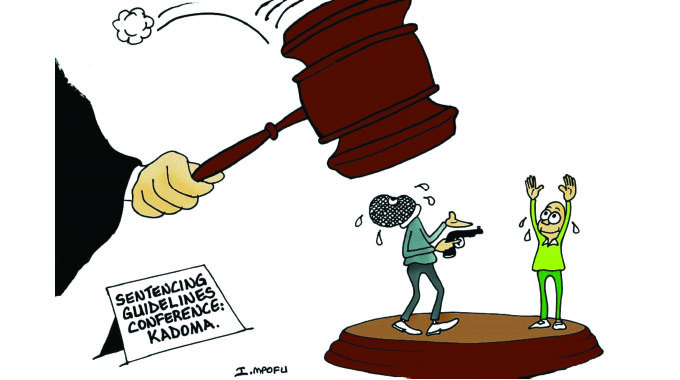16 Days of Activism: Remember people with disability

Rumbidzayi Zinyuke Health Buzz
As we are still in the 16 days of Activism Against Gender Based Violence against women and girls, it is important to highlight how disability is an issue that is often overlooked in this regard.
The world over, violence against women and girls is one of the worst human rights violations. Women with disability are also affected by GBV just as anyone else.
In Zimbabwe, statistics have indicated that one in every three women aged 15 to 49 have experienced physical violence and about one in four women have experienced sexual violence since the age of 15.
However, data on the number of women with disabilities who have experienced physical violence or sexual violence remain unclear.
According to the 2022 Population and Housing Census, people with disability are estimated at about 1,4 million, constituting almost 10 percent of the population.
More than 55 percent of these are women.
Violence against this group of women shares common characteristics with violence against women in general, but those with disabilities experience some forms of abuse that which is different from those without disabilities.
This form of violence is not just a subset of the GBV, but it is a cross cutting issue that deals with gender and disability-based violence.
The coming together of these two factors results in an extremely high risk of violence against women with disabilities.
Women with disabilities have often expressed how they experience a wide range of abuse, including emotional, physical, psychological, sexual and even financial exploitation by spouses, care givers, strangers and even family members.
Despite these experiences, reports of such violations remain minimal as the women may not be aware of the avenues to use to report their cases.
Some even fear reporting their caregivers as this leaves them more vulnerable to further abuse. What exposes women and girls with disabilities to a higher risk of experiencing gender-based and other forms of violence is social stereotypes that often dehumanises and isolates them.
Experts say some of these women with disabilities also experience personal victimisation at a rate four times than that of the rate of people who have none.
Women with disabilities are also more likely to be victims of violence related to alcohol or drug use than men with disabilities.
According to Senator for Disability Naspar Manyau, women with disabilities are at a high risk of facing GBV due to discrimination.
“Persons with disabilities often face more challenges when it comes to GBV,” she said. “It starts in a family set up where a child with disability can be left out when it comes to education.
“Even in society, a person with disability will not be accorded the same chances to take part in activities as those without disability. The discrimination will be more if that person is a woman.”
Senator Manyau said many women with disabilities were subjected to psychological abuse as their husbands sometimes had extramarital affairs, in most cases the affected woman would think her husband was leaving her because of the disability.
This often leads to conflicts that can result in intimate partner violence, another hidden reality that women with disabilities often endure.
While GBV has become a topical issue with many organisations joining the fight to eliminate it, communities and sometimes even those responsible for investigating cases of GBV rarely assume that disabled women have intimate partners.
This means that intimate partner violence can sometimes go undetected.
Barriers to reporting abuse
Women with disabilities often find it difficult to access shelters that can assist them when reporting abuse or even offer them protection.
They also lack access to information about available services, and sometimes may face difficulties in accessing transportation.
The major challenge is fear of losing their financial security, their housing or other benefits if they report the perpetrator.
There is also the fear of not being believed or perceived as not credible, so they usually remain silent.
When the violence is perpetrated by caregivers, family members or friends, it is often considered to be a problem that can be addressed at family level rather than involving the police, thus fewer cases may find their way into the courts.
Recourse
The Constitution in section 56 provides a strong framework for the protection and promotion of the rights of women and men, girls and boys in Zimbabwe.
It recognises the equality of all persons and goes further to explicitly outlaw discrimination on the grounds of sex or gender.
It is, therefore, prudent that more gender mainstreaming activities are now including women with disability.
However, Senator Manyau believes that more needs to be done at the grassroots to ensure that communities begin to accept people with disabilities, and not discriminate against them.
“We need to have parental coaches or counsellors at hospitals who can attend to mothers who give birth to children with disabilities and their partners,” she said. “They can be educated so that they understand disability from the onset and this way, we can avoid having caregivers who abuse their children.
“We can then have a community that protects women and girls with disabilities because they are enlightened.”
As the fight against GBV continues, it is important to unite to end GBV against women and girls with disabilities.
Let us remember women and girls with disabilities.








Comments